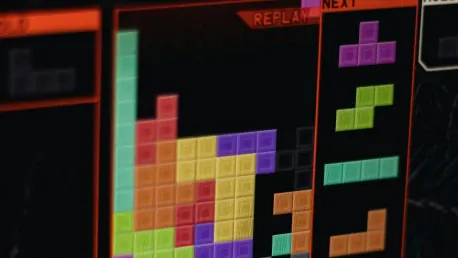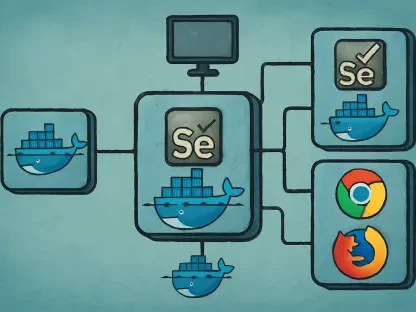The video game industry is navigating a complex landscape, with financial growth on one hand contrasted by significant internal challenges on the other. This paradoxical situation was underscored by the annual Game Awards in Los Angeles, an event likened to the Oscars of the gaming world. Despite the industry generating an impressive $188 billion in revenue in 2024, the road has been fraught with severe hardships, including a notable increase in layoffs and studio closures.
Financial Growth vs. Internal Struggles
Throughout 2023 and 2024, the video game industry’s narrative has been marked by a stark juxtaposition between its financial achievements and the underlying instability within its companies. The market’s impressive profitability has not necessarily translated into financial security for numerous game studios and publishers. This disconnect has been further amplified by investors shifting their attention to more lucrative sectors such as artificial intelligence, leaving game companies under pressure to diversify their offerings.
The industry has faced a significant number of layoffs, with 14,500 individuals losing their jobs in 2024—a marked increase from the 10,500 layoffs in 2023. Major companies, including industry giants like Ubisoft and Sony-owned Firewalk Studios, have been compelled to shut down various operations. Ubisoft closed branches in San Francisco and Osaka, whereas Firewalk Studios, known for the poorly received game “Concord,” also had to cease operations. These closures underscore the intense financial pressures many companies face while trying to remain competitive in an increasingly constrained environment.
Established Franchises vs. New Titles
Despite the various challenges within the industry, established game franchises continue to thrive, serving as significant revenue drivers. Blockbuster titles like “Call of Duty,” “Fortnite,” “Minecraft,” and “Grand Theft Auto” maintain their stronghold in the market. For instance, the latest “Call of Duty” installment has been hailed as the best in the series by its publisher, Activision Blizzard, highlighting the continued success of these well-known franchises in generating robust revenue.
Conversely, new titles face daunting obstacles when attempting to enter a saturated market. Highly anticipated games like the second part of the “Final Fantasy VII” remake and “Star Wars Outlaws” have confronted disappointing sales figures, reflecting the substantial difficulties new titles encounter in gaining market traction. This scenario highlights the inherent challenge in breaking through a crowded marketplace, where renowned franchises dominate consumer interest and spending.
Success of Indie Games and International Titles
Amid the turmoil experienced by larger studios, indie games and international titles have found ways to flourish and capture the market’s interest. Indie developers have proven that smaller studios can also make a significant impact, with games like “Palworld” and “Helldivers 2” achieving impressive sales figures. “Palworld,” often described as “Pokemon with guns,” and “Helldivers 2,” which draws inspiration from the film “Starship Troopers,” exemplify the potential for indie games to resonate with audiences.
A particularly remarkable success story has emerged from China’s gaming market. The action game “Black Myth: Wukong,” based on the iconic 16th-century Chinese novel “Journey to the West,” has sold approximately 25 million copies worldwide, with 70 percent of these sales occurring in China. This exceptional performance underscores China’s growing influence in the global video game industry, aided by lower development costs and supported by major companies like Tencent and NetEase.
China’s Growing Influence in the Gaming Market
China’s gaming market is not only vast but also increasingly significant on a global scale, with over 700 million gamers accounting for 25 percent of the worldwide market. The country’s familiarity with mobile games and free-to-play models, which derive revenue through in-game purchases, offers a unique positioning in the global gaming landscape. Analyst Daniel Ahmad observes that the push towards AAA games, characterized by the largest budgets, signifies the beginning of a substantial trend in China’s gaming scene.
Chinese companies’ growing appetite and enhanced development capabilities suggest that many more blockbuster titles are likely to emerge from this region in the future. Giants such as Tencent and NetEase play pivotal roles in this evolution, cementing China’s role as a formidable force in the gaming industry through significant investments and influential market strategies. The trend indicates that China’s contribution to the gaming world extends beyond consumer numbers, encompassing significant creative and commercial impacts.
Potential Recovery and Future Prospects
The video game industry finds itself in a challenging dichotomy, experiencing financial growth while grappling with significant internal issues. This complex situation came into sharp focus during the annual Game Awards in Los Angeles, an event parallel to the Oscars in the gaming world. While the industry is poised to generate a staggering $188 billion in revenue by 2024, it’s a success story with dark undertones. The lucrative gains are overshadowed by severe hardships, including an escalating number of layoffs and studio closures. This paradoxical scenario highlights the intricate dynamics within the gaming industry, where financial prosperity and business struggles coexist. As the industry continues to expand and evolve, these internal crises underscore the volatility that lies beneath its thriving surface. The juxtaposition of booming financial figures against a backdrop of organizational turmoil reveals the fragile nature of this seemingly invincible industry. With advancements in technology and shifting market dynamics, the gaming world must navigate an unpredictable path forward.









